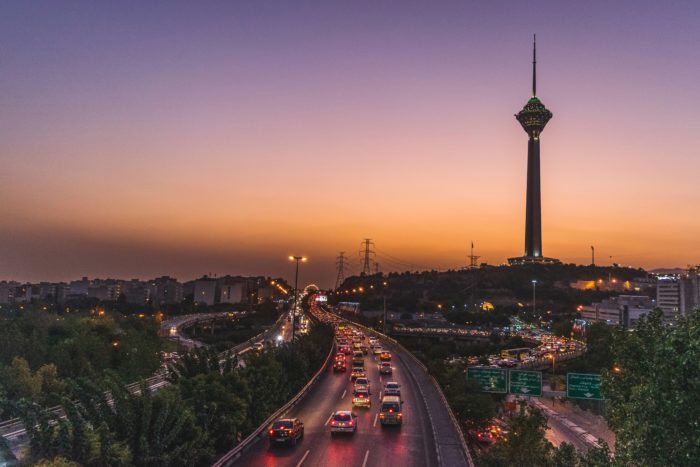That the next twenty-four hours will be both volatile and crucial for the possibility of a ceasefire in Gaza is clear from the contradictory statements by Israeli and Hamas officials noted in an interview with ELIAMEP researcher Gabriel Haritos, who teaches the History of Greek-Israeli Relations at Panteion University and Ben-Gurion University in Israel, which was broadcast on ERT3 (Thessaloniki). Thus, on the one hand, Israeli Foreign Minister Israël Katz stressed in his statements today that “we are very close to an agreement”, noting that “many of the 133 hostages will soon be returning home”. While, on the other, Hamas representatives stress that “Israel has not backed down from its positions”, though this does not mean they are necessarily withdrawing from the Cairo talks. As per Mr. Haritos, Israel considers that it has done everything the Biden administration asked of it (approving new humanitarian aid channels and withdrawing operational forces from Gaza). However, Hamas is demanding a definitive Israeli withdrawal from the enclave without the threat of the Rafah operation, and also that civilians be allowed to return unimpeded from the south to their homes in northern Gaza – demands Israel clearly rejects. In any case, Mr. Haritos was of the opinion that “the short-term objective, that of implementing a ceasefire for humanitarian reasons for a few days starting tomorrow or the day after tomorrow, during the Muslim festival of Eid al-Fitr, is not realistic in terms of its timing”. He went on to clarify that “the important thing is to implement such a ceasefire, even if the deadline is not met”.
Regarding Iran’s threat to retaliate to the Israeli bombing of its consulate in Damascus, Gabriel Haritos conveyed the uneasy mood of Israeli public opinion. However, he stressed that yesterday’s statement by the head of the Iranian armed forces, General Mohammad Bayeri, at the funeral of Al-Quds Force commander Mohammad Reza Zahedi, who died at the Iranian consulate in Damascus, “was in the familiar context of previous Iranian statements that Iran will respond to Israel at a time and in a manner of its choosing in the future”. It was Haritos’ assessment that Iran’s eyes are on the situation in Syria and Lebanon rather than Gaza, adding that “the situation in Gaza may seem to be calming down, but the opposite has been true since the day before yesterday on the Israel-Hezbollah front”. “Israel achieved a very important strike yesterday on a unit of the ‘Radwan Force’ (Hezbollah commandos capable of carrying out another October 7 on Israeli settlements in the north), and it was announced that the commander of Radwan was neutralized in an air strike today at dawn”, Haritos explained. Despite the recent tension between Israel and Iran, “it should be borne in mind that Iran has a strong sense of self-preservation”. “It is typical”, Mr. Haritos noted, that – unlike the rest of the Middle East – Iran’s borders have remained unchanged for decades”, pointing out that the Tehran government will think twice before going on the offensive at a time when the international community is critical of Israel “while Iran is allegedly being abused and seeking to maintain what it sees as its ‘moral advantage’”. Summing up, Haritos stressed that “Iran’s retaliation will depend primarily on developments on the Israel-Lebanon-Syria front” with no specific timetable.
Asked about the current climate in Jerusalem, where the two bordering ethnic elements, Jewish and Arab, meet, Haritos said that the city has begun to return to normality after a long period in which the city’s Jewish and Arab residents had been ‘self-isolating’, which is to say avoiding being in the same neighbourhoods. “However, it is easy to understand that the country is at war when armed reservists sit next to you in the cafes, and even young mothers have a gun slung on their shoulder as they push their baby’s stroller.” “These are everyday images in the city”, he said, adding that “this Easter will not be like the others”.
In response to the question of which central issue will play a catalytic role in ending the war, Gabriel Haritos expressed the opinion that “the issue everyone is discussing, but not making announcements about publicly, is this: What is going to happen to the Hamas leaders who are still in Gaza?”. “It is of primary concern to the Palestinian organization whether they manage to survive the end of the war. After all, there is the historical precedent of the PLO leadership’s exile from Lebanon to Tunisia in 1982 after guarantees had been provided for their safety. Something similar is being pursued by Hamas today. So, when the question of where the Hamas leadership will be transferred to, and under what conditions, is answered, then we will know exactly when this round of the perpetual Israeli-Palestinian conflict will end”. On the other hand, he believed that “essentially, the goal that Israel set for itself to eradicate Hamas, to wipe it off the map, does not seem to have been achieved”. “The Israelis have set the bar too high”, Haritos concluded.
Click to listen to the interview, in Greek.




